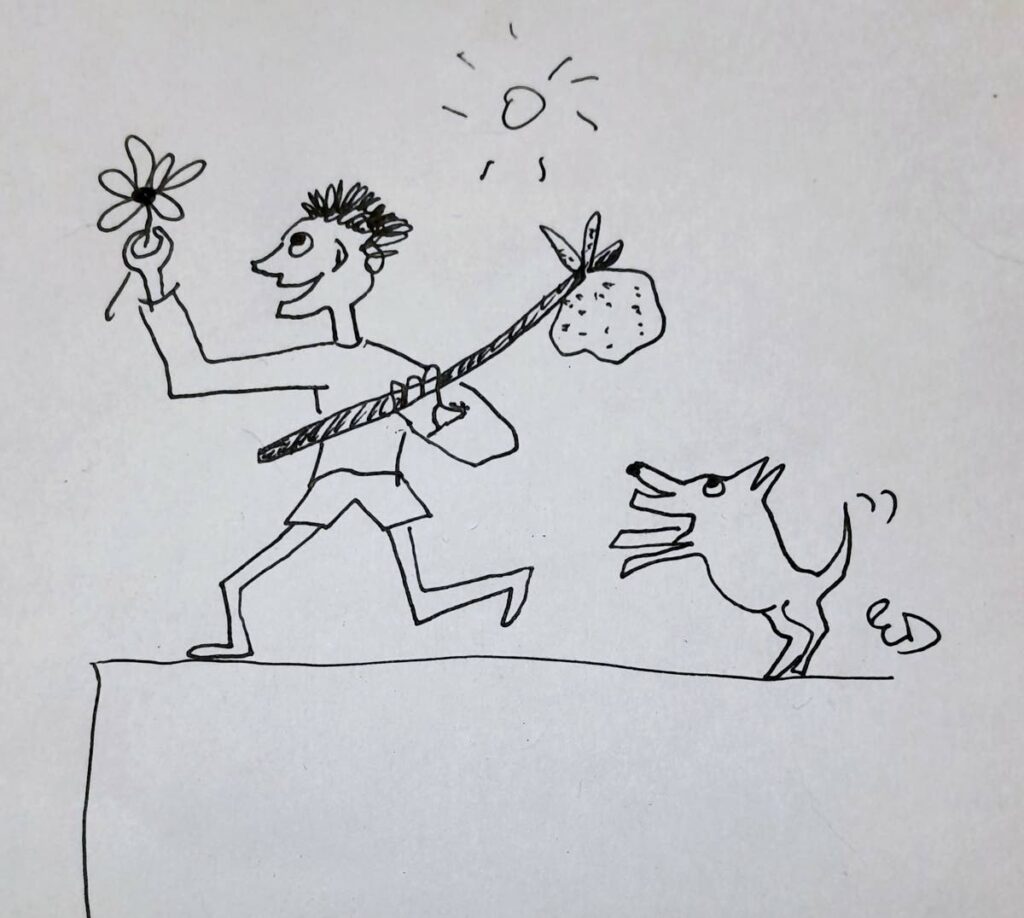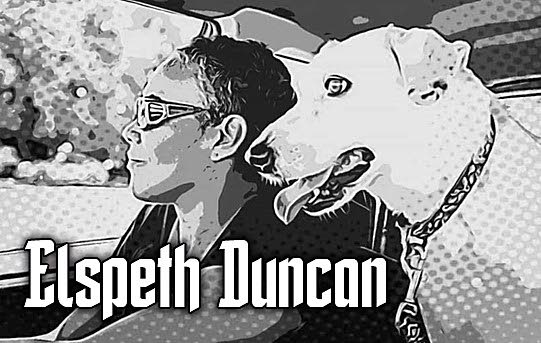Do you coddiwomple?

Recently, when I came across a new word, "coddiwomple," I thought it sounded like something from an Enid Blyton book, or like one of the Wombles of Wimbledon (cute, furry, plump, pointy-nosed fictional creatures), from a television programme we watched as children when we lived in England for eight months.
As it is not a word that most people would know, I asked three people at random what they thought it meant.
The first respondent, a teacher, laughed.
"Some British word," she said. "Some stupid thing in England."
After pausing to think about it for a while, she continued: "It is a cutie pie. Someone cuddly and nice."
When I finally told her the meaning, she laughed and said "Oh! Then I will be coddiwompling in December with my husband!"
The second respondent, a shop owner, also laughed upon hearing the word and admitted that he had never heard it before. He then repeated it several times, slowly, as though tasting it and trying to figure out the ingredients.
Laughing, he then said, "Let's say you and I are in a relationship...it means to cuddle...and wumple is to kiss up, hug up. Something nice. It's nothing that could be bad. You could invite someone over for some coddiwompling."
The third person, a farmer who had once lived in England, looked befuddled, then said it sounded like some kind of nonsense – "like codswallop."
Codswallop is English slang for words or ideas that are foolish, gibberish or not true.
The actual meaning of "coddiwomple," a recent English slang word (apparently circa late 2010s) is: "To travel purposefully toward an as-yet-unknown destination."
Another online definition states: "To travel in a purposeful manner towards a vague destination."
I prefer the first definition, since "as-yet-unknown" sounds full of potential and on the verge of discovery, compared to "vague," which suggests lack of clarity and focus, a degree of aimlessness, that in my mind, gives coddiwomple (which I see as a positive) a somewhat negative connotation.
Some may ask how one can be purposeful if the destination is as yet unknown.

One's purposefulness can be as simple as living in and appreciating the present moment. In the present moment we are able (or not, as the case may be) to make the most of what is experienced at each step of life's journey.
The following two similar quotes are very coddiwomplish:
"It is not the destination, it's the journey." (attributed to Ralph Waldo Emerson).
"The journey, not the destination, matters." (attributed to TS Eliot).
The whimsical illustration that accompanied the word "coddiwompling" when I came across it online was of a human figure, looking carefree, holding a flower, with a dog gambolling at his/her heels.
Those who are familiar with the artwork of the popular Rider-Waite Tarot deck will recognise that illustration as similar to the imagery depicted in the Fool – the first card of the tarot deck's Major Arcana.
The illustration on that card shows a young, carefree figure at the edge of a cliff, without a fear in the world, seemingly about to take a step over the edge. A georgie bundle in one hand, a white rose in the other and a small white dog at his/her heels all hold deeper symbolism for the layers of meaning connected to the unfolding journey.
AE Waite, who created this deck of cards and its symbolic imagery, refers to the Fool as "the spirit in search of experience.”
Indeed, this figure appears to be setting off on an adventure with his/her small white dog (symbol of loyalty and protection) in tow. Rather than focusing on the potential danger of the drop off the precipice, the figure's eyes are raised to the heavens, potentially a sign of a carefree nature and also trust in the universe.
This card generally represents innocence, spontaneity, new beginnings, taking a leap of faith into the unknown.
It is no wonder that an illustration inspired by the Fool card was used to visually define "coddiwomple."
While I was writing this article, two friends stopped by to collect something. Ironically, as they were leaving, one of them, to whom I had sent the word when I came upon it (as it reminded me of them as individuals and as a couple), said "What's that word again? Coddi-something?"
I reminded them and we laughed, agreeing that life thus far felt like one big coddiwomple and we could not imagine it being any other way.


Comments
"Do you coddiwomple?"